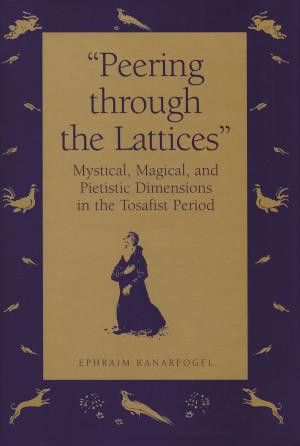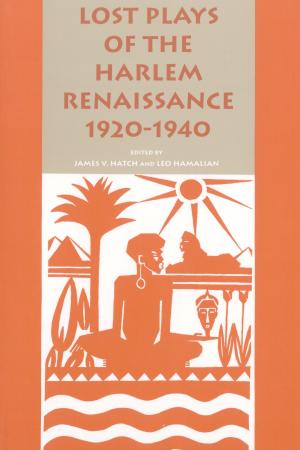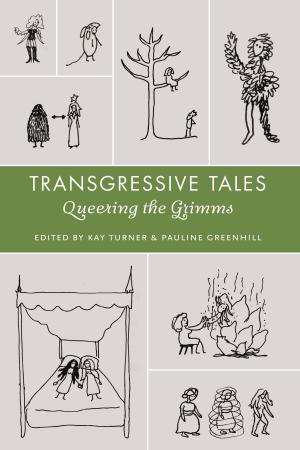From Dog Bridegroom to Wolf Girl
Contemporary Japanese Fairy-Tale Adaptations in Conversation with the West
Fiction & Literature, Literary Theory & Criticism, Asian, Far Eastern, Women Authors, Nonfiction, Social & Cultural Studies, Social Science, Folklore & Mythology| Author: | Mayako Murai | ISBN: | 9780814339503 |
| Publisher: | Wayne State University Press | Publication: | November 1, 2015 |
| Imprint: | Wayne State University Press | Language: | English |
| Author: | Mayako Murai |
| ISBN: | 9780814339503 |
| Publisher: | Wayne State University Press |
| Publication: | November 1, 2015 |
| Imprint: | Wayne State University Press |
| Language: | English |
As in the United States, fairy-tale characters, motifs, and patterns (many from the Western canon) have pervaded recent Japanese culture. Like their Western counterparts, these contemporary adaptations tend to have a more female-oriented perspective than traditional tales and feature female characters with independent spirits.In From Dog Bridegroom to Wolf Girl: Contemporary Japanese Fairy-Tale Adaptations in Conversation with the West, Mayako Murai examines the uses of fairy tales in the works of Japanese women writers and artists since the 1990s in the light of Euro-American feminist fairy-tale re-creation and scholarship. After giving a sketch of the history of the reception of European fairy tales in Japan since the late nineteenth century, Murai outlines the development of fairy-tale retellings and criticism in Japan since the 1970s. Chapters that follow examine the uses of fairy-tale intertexts in the works of four contemporary writers and artists that resist and disrupt the dominant fairy-tale discourses in both Japan and the West. Murai considers Tawada Yoko’s reworking of the animal bride and bridegroom tale, Ogawa Yoko’s feminist treatment of the Bluebeard story, Yanagi Miwa’s visual restaging of familiar fairy-tale scenes, and Konoike Tomoko’s visual representations of the motif of the girl’s encounter with the wolf in the woods in different media and contexts. Forty illustrations round out Murai’s criticism, showing how fairy tales have helped artists reconfigure oppositions between male and female, human and animal, and culture and nature. From Dog Bridegroom to Wolf Girl invites readers to trace the threads of the fairy-tale web with eyes that are both transcultural and culturally sensitive in order to unravel the intricate ways in which different traditions intersect and clash in today’s globalising world. Fairy-tale scholars and readers interested in issues of literary and artistic adaptation will enjoy this volume.
As in the United States, fairy-tale characters, motifs, and patterns (many from the Western canon) have pervaded recent Japanese culture. Like their Western counterparts, these contemporary adaptations tend to have a more female-oriented perspective than traditional tales and feature female characters with independent spirits.In From Dog Bridegroom to Wolf Girl: Contemporary Japanese Fairy-Tale Adaptations in Conversation with the West, Mayako Murai examines the uses of fairy tales in the works of Japanese women writers and artists since the 1990s in the light of Euro-American feminist fairy-tale re-creation and scholarship. After giving a sketch of the history of the reception of European fairy tales in Japan since the late nineteenth century, Murai outlines the development of fairy-tale retellings and criticism in Japan since the 1970s. Chapters that follow examine the uses of fairy-tale intertexts in the works of four contemporary writers and artists that resist and disrupt the dominant fairy-tale discourses in both Japan and the West. Murai considers Tawada Yoko’s reworking of the animal bride and bridegroom tale, Ogawa Yoko’s feminist treatment of the Bluebeard story, Yanagi Miwa’s visual restaging of familiar fairy-tale scenes, and Konoike Tomoko’s visual representations of the motif of the girl’s encounter with the wolf in the woods in different media and contexts. Forty illustrations round out Murai’s criticism, showing how fairy tales have helped artists reconfigure oppositions between male and female, human and animal, and culture and nature. From Dog Bridegroom to Wolf Girl invites readers to trace the threads of the fairy-tale web with eyes that are both transcultural and culturally sensitive in order to unravel the intricate ways in which different traditions intersect and clash in today’s globalising world. Fairy-tale scholars and readers interested in issues of literary and artistic adaptation will enjoy this volume.















